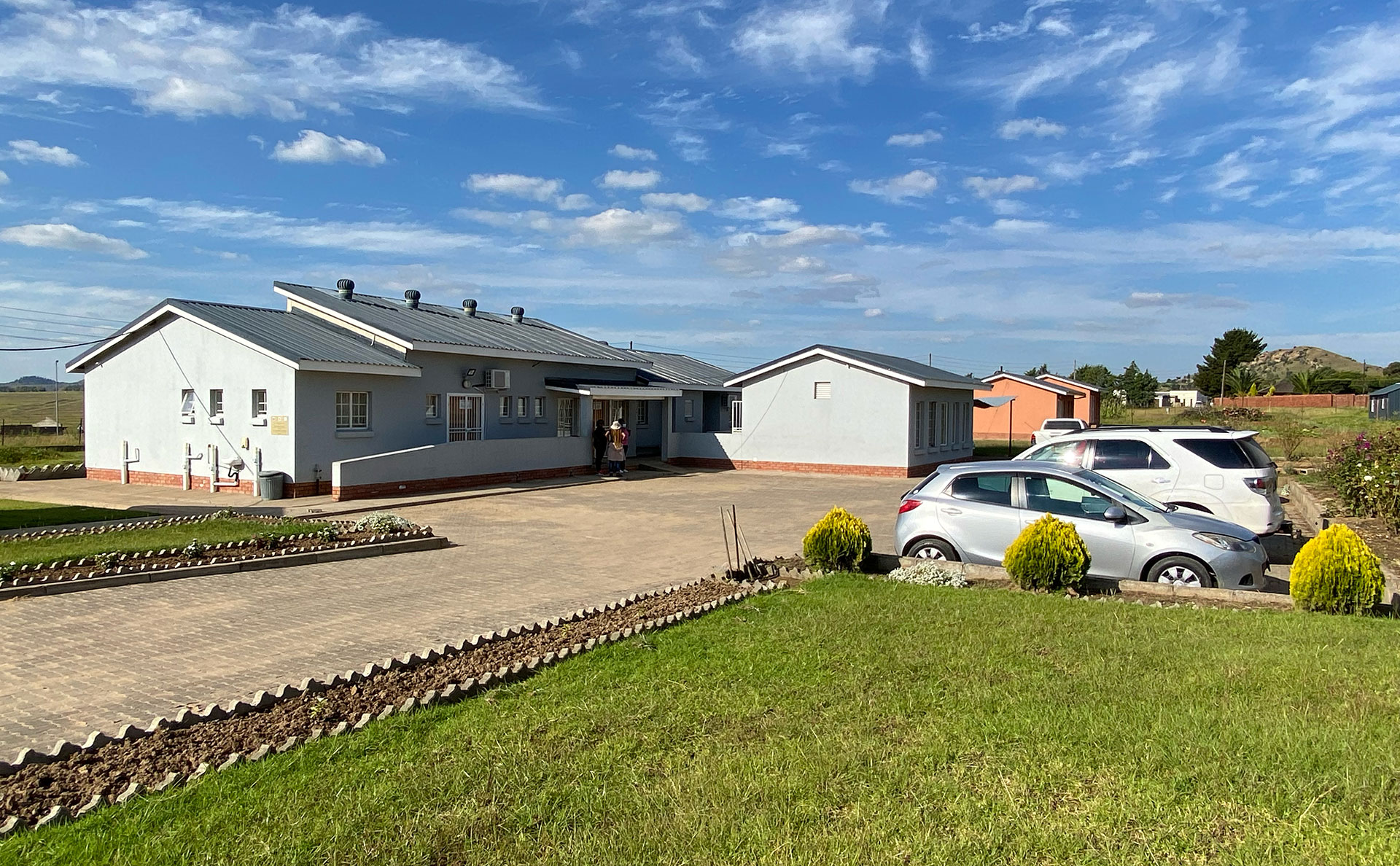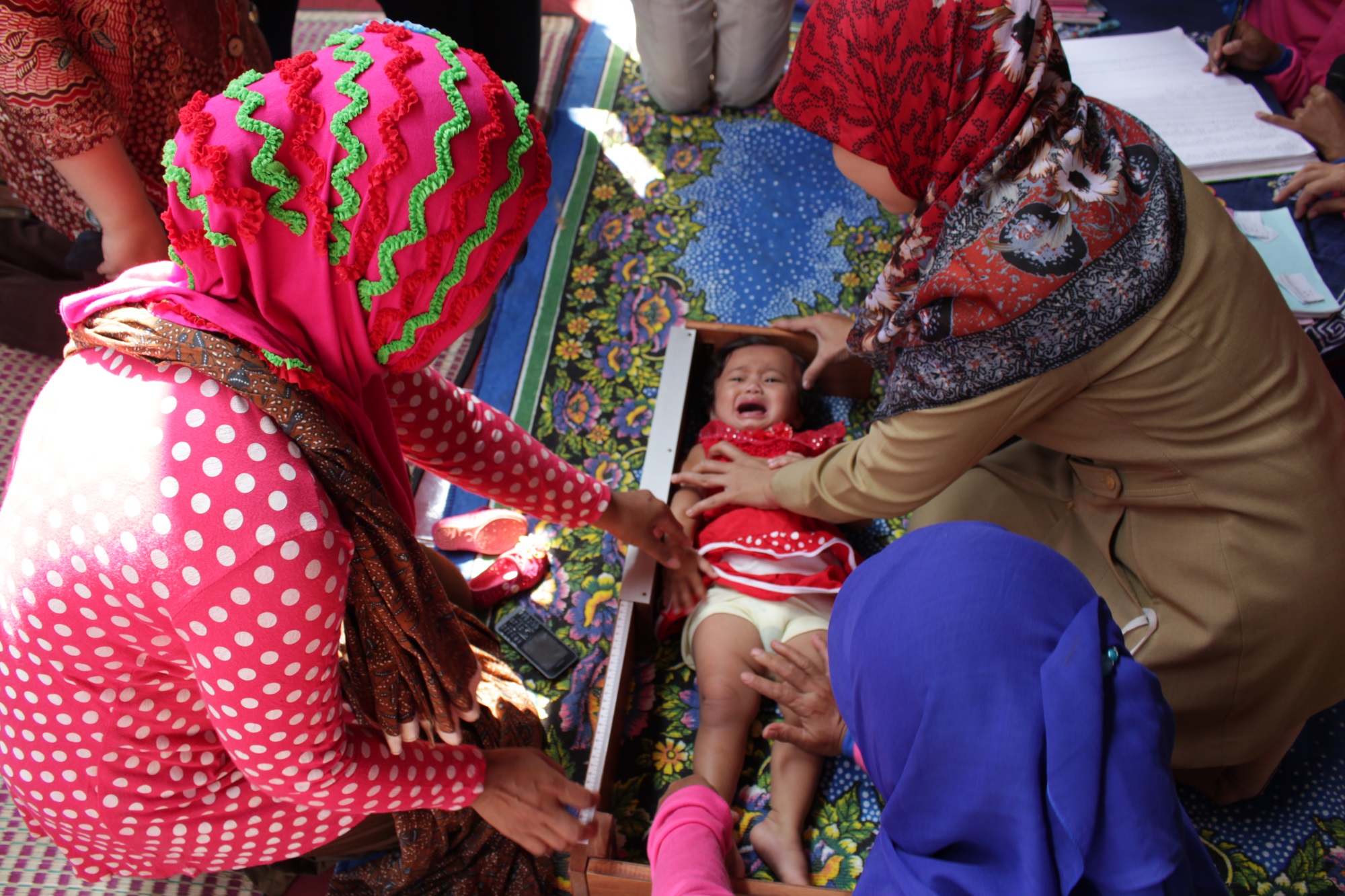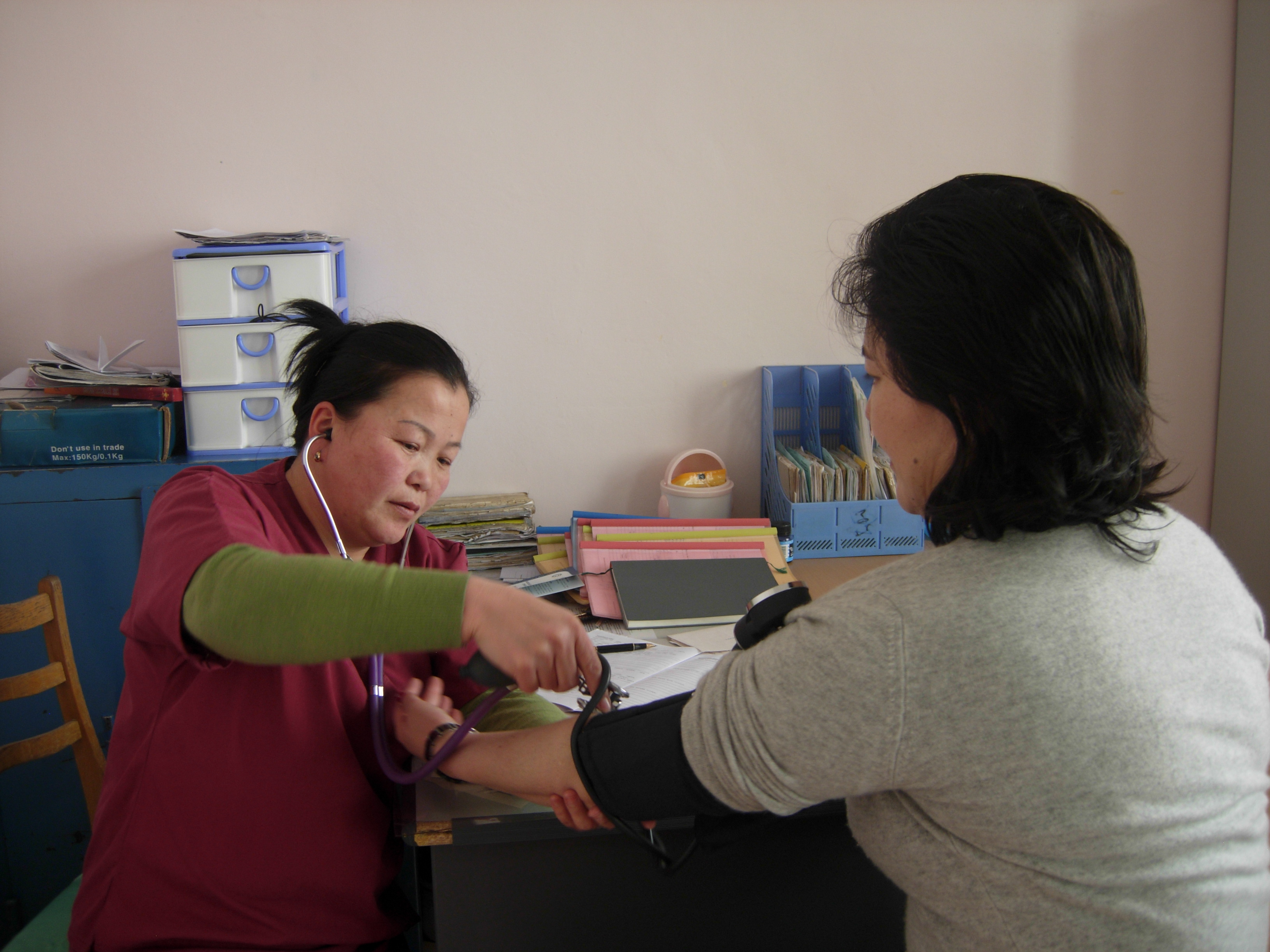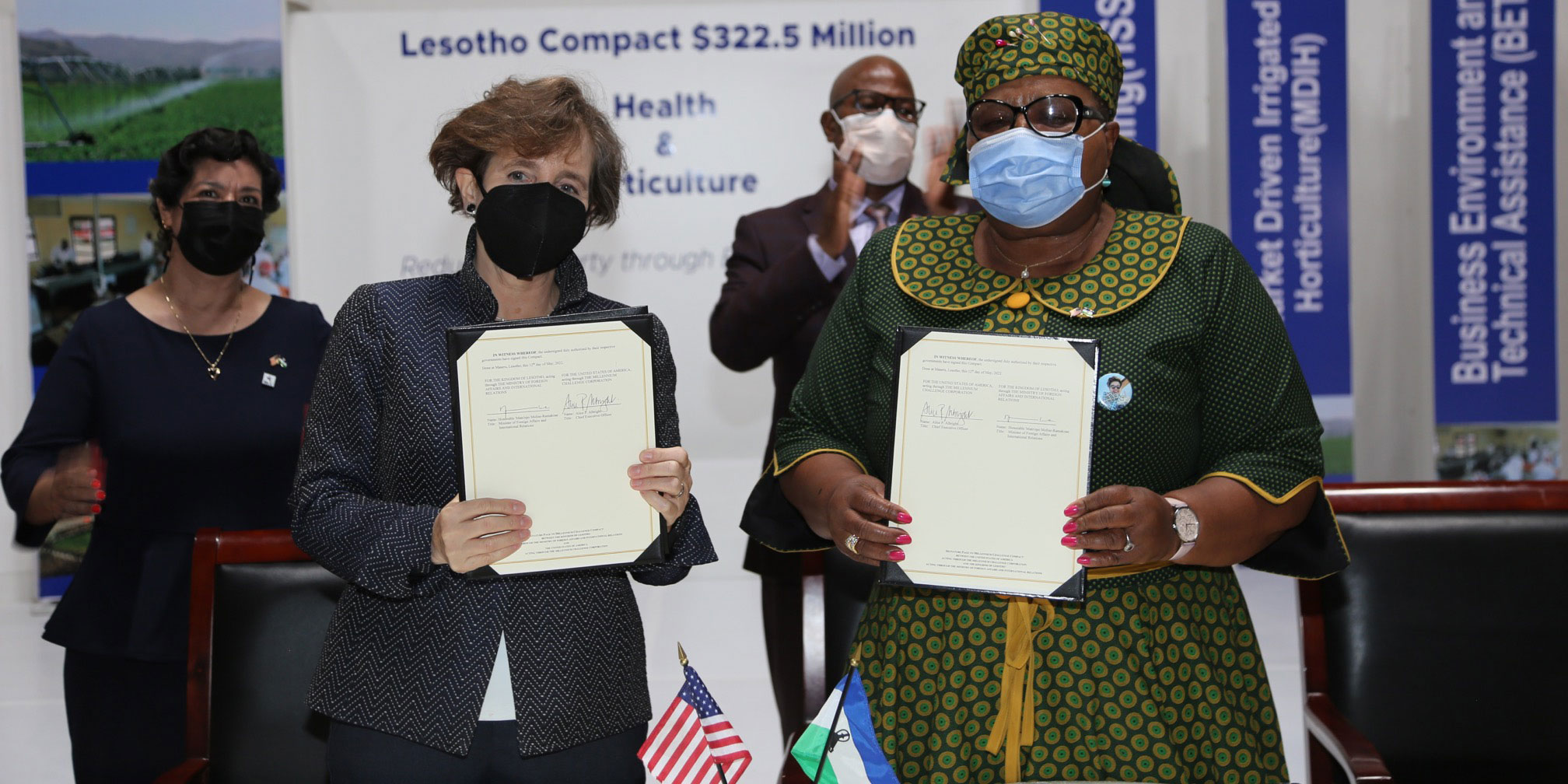Investing in health to foster economic growth and reduce poverty
A healthy population is critical to economic growth and poverty reduction. MCC investments in health consider that a wide range of factors across many sectors may influence an individual or community’s health. When a partner country identifies a food, water, sanitation, education, environment or social protection system weakness that makes health a binding constraint to economic growth, MCC works with that partner country to strengthen the system to provide the critical services that improve lives and build a more productive workforce.
Making Health-Wise Investments
-
The Nutrition Investment Toolkit supports a nutrition-smart approach to compact development and project design that considers the impact that investments in any sector may have on nutrition status.
When selecting country partners, MCC looks at public health expenditures, policies and key health indicators to understand a government’s efforts to provide adequate health care and healthy living conditions for their people.
MCC’s Environmental Guidelines establish a process for identifying and mitigating the potential health and safety impacts of all MCC projects. For roads projects, for example, MCC utilizes a multi-disciplinary approach to identify road safety concerns early in project development and integrate appropriate measures into road design and construction to counter them. And for water infrastructure activities, such as the rehabilitation of water drainage systems, MCC focuses on health impacts, including malaria and other water-related diseases.
In addition to mitigating health risks, MCC investments often aim to address health challenges in partner countries. Community-driven projects, such as those funded in Burkina Faso, El Salvador and Ghana, have focused on local health and education services. MCC’s infrastructure projects also result in improved access to health services, particularly for poor and rural populations.
MCC also rigorously and systematically assesses the health sector costs in advance of its programming. Guidance on how MCC conducts these assessments can be found in MCC’s Health Sector Cost-Benefit Analysis Guidance.
Examples of MCC's Health Projects
Health System Strengthening in Lesotho

MCC
The Little Flower Health Center is one of the clinics built through MCC’s previous compact investment in Lesotho. Prior to this clinic, nurses worked through “borrowed houses” and had no space to store antiretrovirals and other important medications.
The Health and Horticulture Compact aims to improve primary healthcare services and standards of care and work with the Ministry of Health to modernize digital health data systems. A health project is expected to improve health outcomes, especially maternal and child health. The compact builds upon MCC’s previous compact with Lesotho, which provided an estimated 752,000 people with access to basic healthcare through the construction and rehabilitation of 138 health facilities and 14 outpatient departments—representing 90 percent of the health facilities throughout the country.
Data To Improve Health in Tanzania And Côte d’Ivoire
The United States President’s Emergency Plan for AIDS Relief (PEPFAR) and MCC, entered into a $21.8 million partnership in 2015 to create the Collaboratives for Local Impact (DCLI) program. DCLI improved the capacity of individuals, communities and organizations to use data to solve problems relating to HIV/AIDS, global health, gender equality, and economic growth.
Air Quality Data in Kosovo
Kosovo has poor air quality due to its reliance upon coal, and high levels of smog are impacting the health of its people. As part of $48 million threshold program with Kosovo, the people of Kosovo gained access to continuous and historical air quality data as well as three-day air quality forecasts accessible online and through smartphone application hosted by the Kosovo Hydrometeorological Institute with a simple map and chart-based interface starting in 2020. These components will help people make more informed decisions regarding their health and safety and to better consider the air quality around them as they plan their everyday lives.
Maternal and Child Health and Nutrition (MCHN)

Women in Indonesia learn how to properly measure a baby's size as part of the MCC-funded nutrition project.
Indonesia Compact raised much needed public awareness about stunting and built the capacity of the Indonesian Ministry of Health to reduce stunting by improving nutrition, sanitation, and health among vulnerable groups. A community-based health project, which included partnership with the private sector, targeted 5,700 villages across 11 of Indonesia’s 34 provinces and integrated sanitation, health, and nutrition interventions to support the Government’s efforts to reduce stunting in children − leading to higher wages, lower healthcare costs and a more productive workforce nationwide.
Preceding the Indonesia Compact, Indonesia Threshold Program included a $20 million project to support the Government of Indonesia in reaching immunization targets. The project ensured the availability of quality vaccine supplies and provided training for health-care providers on epidemiology, immunization and surveillance, mid-level management, financial sustainability, integrated health planning, and budgeting.
Non-communicable Disease and Injury (NCDI)

MCA-Mongolia
One project of the first Mongolia Compact sought to address the high and growing incidence of non-communicable diseases and injuries by increasing the national and local response to NCDI's and increasing the availability of health services.
As part of MCC’s first compact with Mongolia, $42 million was utilized to strengthen the national program for prevention, early diagnosis and management of non-communicable diseases and injuries. Mongolia's death rates from premature heart disease, stroke, diabetes and pedestrian traffic accidents had risen precipitously preceding the compact. This MCC-funded public health intervention expanded and strengthened Mongolia’s national program for prevention, early diagnosis, and treatment of NCDI’s. The program included clinical guideline development, health worker training, and national screening programs for hypertension and cervical cancer.
Water and Sanitation
.jpg)
Jake Lyell for MCC
Thousands of people in Mecupes, a rural district of Nampula province, Mozambique are now benefiting from access to fresh water thanks to hand-powered water pumps funded through MCC’s Compact.
Unimproved sanitation is a leading risk factor for chronic malnutrition in developing countries and requires interventions focused on improving living environment and nutrition at the household level. Diarrhea remains the second leading cause of death, after respiratory illnesses, for children in developing countries. Poor access to safe drinking water and sanitation is the main cause of many of these deaths.
Many of the economic benefits from water and sanitation activities accrue from reduced illness and improved health, particularly for the poor. MCC’s first compact in El Salvador invested nearly $16.6 million to provide access to potable water systems and sanitation services to benefit 90,000 people in the poorest region of the country. MCC also included water and sanitation projects in compacts with Lesotho, Mozambique, Ghana, Jordan, Zambia, Liberia and Sierra Leone.
.jpg)
Jake Lyell for MCC
Workers install rainwater drainage equipment in Nampula as part of the Mozambique Compact. Improper drainage can lead to marshy soil, stagnant water and the spread of disease.
Recognizing the link between sanitation and nutritional status, the nutrition (CBHN) project in Indonesia invested in a Community Led Total Sanitation (CLTS) campaign targeting 1,600 villages. The CLTS approach involves teams of health workers and volunteers “triggering” their communities by facilitating discussions around open defecation, contamination of food and drinking water, and sanitation solutions. To meet the demand for sanitation services and products that this effort generates, local members of the private sector were trained as a corps of “sanitation entrepreneurs” to provide appropriate sanitation technologies like latrines, grey water disposal methods, and hand washing stations.
In Sierra Leone, the Water Sector Reform Project improves access to reliable and safe water and sanitation (WASH) services through water sector reform, improved utility management and efficiency, and improved WASH practices at the household level. Increased productivity related to lower direct and indirect health costs for firms and households is targeted to increase economic growth.


